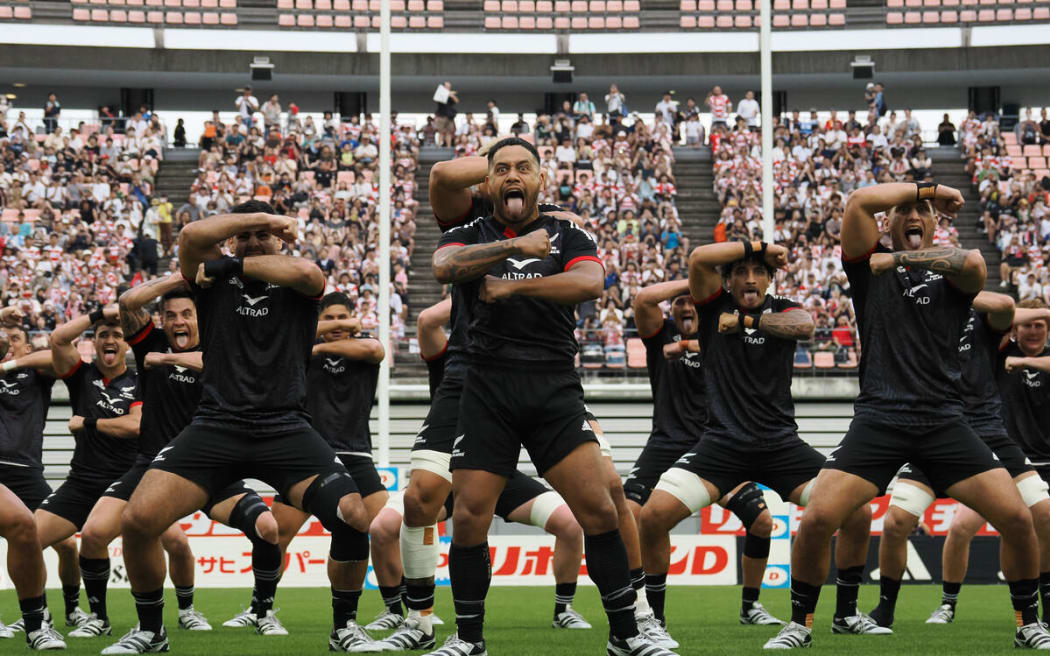Sports
South Africa Rugby Plans Apology to Māori Players Next Year

The South Africa Rugby Union has announced plans to formally apologise to the Māori All Blacks for their historical exclusion during the apartheid era. President Mark Alexander revealed that discussions are underway to host the Māori team for two matches in South Africa next year. This initiative aims to address the injustices of the past and recognize the rich heritage of the Māori players, who were barred from touring due to their ethnicity.
Alexander spoke about the significant impact of apartheid, stating, “The Māori All Blacks—a team rich in heritage and pride—were denied the right to tour South Africa for decades, simply because they were not white. That exclusion was a stain on our history, and it is long overdue that we confront it with humility and remorse.” His comments were reported by Cape Town-based journalist Mark Keohane.
Plans for Reconciliation and Recognition
The planned matches with the Māori All Blacks will not merely highlight rugby excellence, but will also serve as a moment for reconciliation. Alexander emphasized the importance of honouring those who suffered discrimination and exclusion: “These games will be a celebration of rugby excellence—a moment of reckoning, recognition, and reconciliation.”
This announcement comes as anticipation builds for the upcoming test match between the New Zealand All Blacks and the South African Springboks, scheduled for next week. Additionally, the All Blacks are set to embark on a significant tour of South Africa in 2026. This tour, titled “The Greatest Rivalry,” will feature three test matches and five midweek games, culminating in a fourth test at Twickenham in London later that year.
While New Zealand Rugby has yet to confirm the involvement of the Māori All Blacks in the 2026 tour, they indicated that they are “exploring options for the Black Ferns during the tour.” Further details are expected to be released in the coming weeks alongside the South Africa Rugby Union.
Historical Context of Exclusion
The exclusion of Māori and Pasifika players from the All Blacks’ tours to South Africa began in the late 1940s and persisted through the 1960s. Players were systematically barred from international competitions based solely on their race. Notably, in 1970 and 1976, players such as Sir Bryan Williams and Sid Going were granted “honorary white” status under apartheid laws, allowing them to participate, albeit under deeply problematic circumstances.
Earlier, in 1928, Māori players were omitted from a pre-apartheid tour at the behest of the New Zealand Rugby Football Union (NZRFU) due to fears of exacerbating the racially charged environment in South Africa. It was not until 1994, following the election of Nelson Mandela as president and the dismantling of apartheid, that a Māori team toured South Africa. This visit was facilitated by Alexander’s predecessor, Louis Luyt, as a gesture of goodwill towards Mandela’s new African National Congress government during a time of significant social upheaval.
The 1995 Rugby World Cup saw Mandela and Luyt play pivotal roles as the Springboks secured a memorable victory against the All Blacks in the final. The upcoming apology and matches represent a significant step towards acknowledging and rectifying past injustices, fostering a spirit of unity within the sport.
-

 World4 months ago
World4 months agoTest Your Knowledge: Take the Herald’s Afternoon Quiz Today
-

 Sports4 months ago
Sports4 months agoPM Faces Backlash from Fans During Netball Trophy Ceremony
-

 Lifestyle4 months ago
Lifestyle4 months agoDunedin Designers Win Top Award at Hokonui Fashion Event
-

 Entertainment4 months ago
Entertainment4 months agoExperience the Excitement of ‘Chief of War’ in Oʻahu
-

 Sports4 months ago
Sports4 months agoLiam Lawson Launches New Era for Racing Bulls with Strong Start
-

 World5 months ago
World5 months agoCoalition Forms to Preserve Māori Wards in Hawke’s Bay
-

 Lifestyle4 months ago
Lifestyle4 months agoDisney Fan Reveals Dress Code Tips for Park Visitors
-

 Health4 months ago
Health4 months agoWalking Faster Offers Major Health Benefits for Older Adults
-

 Politics4 months ago
Politics4 months agoScots Rally with Humor and Music to Protest Trump’s Visit
-

 Top Stories5 months ago
Top Stories5 months agoUK and India Finalize Trade Deal to Boost Economic Ties
-

 Health2 months ago
Health2 months agoRadio Host Jay-Jay Feeney’s Partner Secures Visa to Stay in NZ
-

 World5 months ago
World5 months agoHuntly Begins Water Pipe Flushing to Resolve Brown Water Issue









